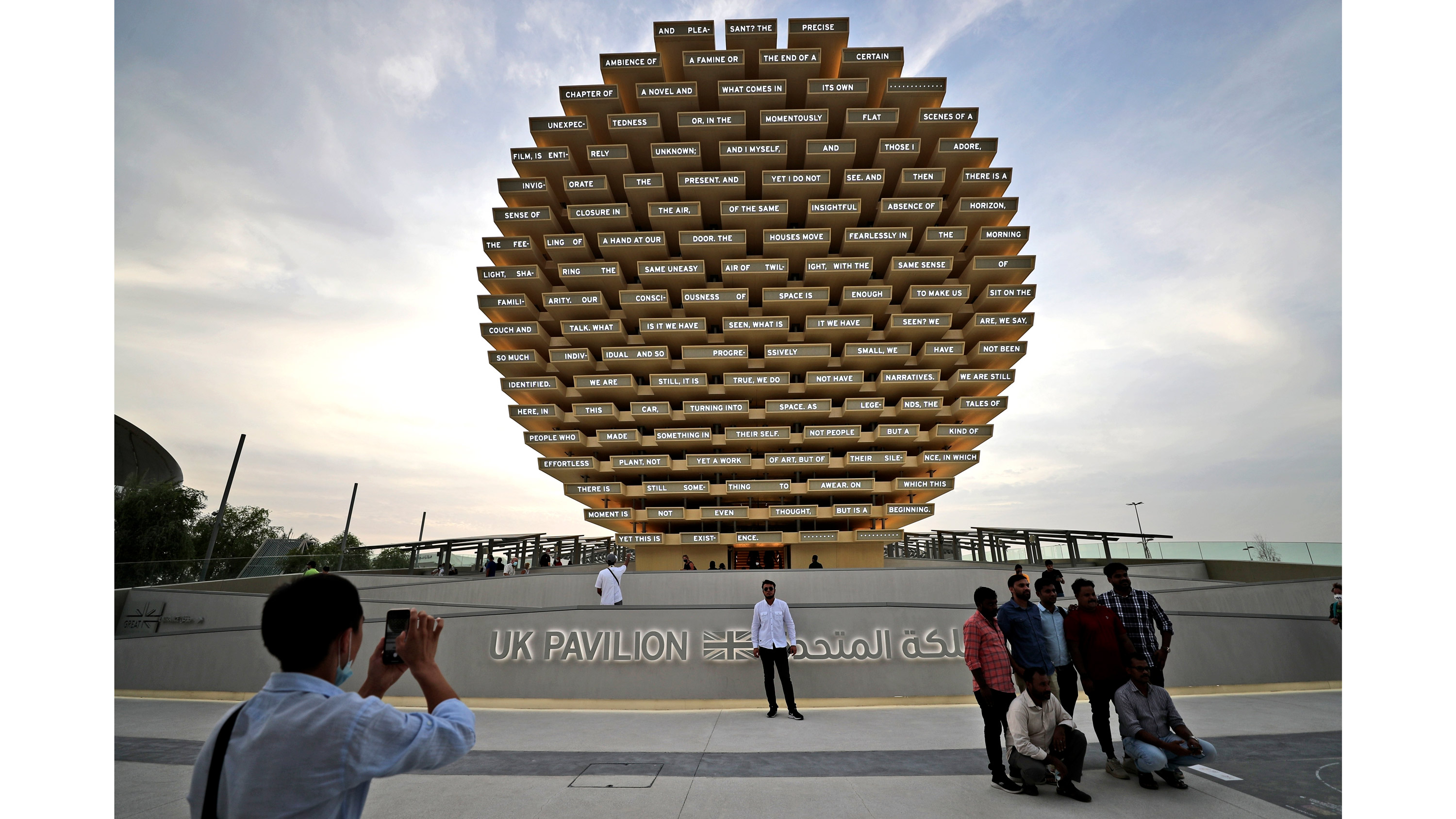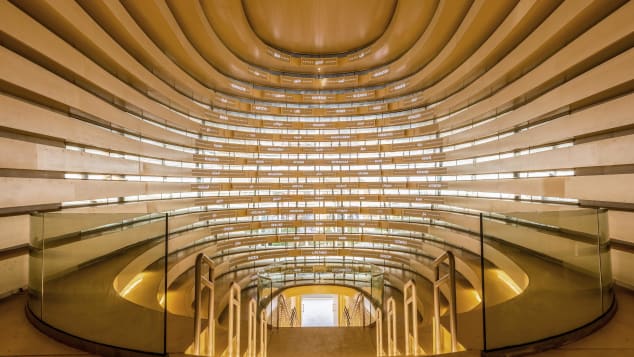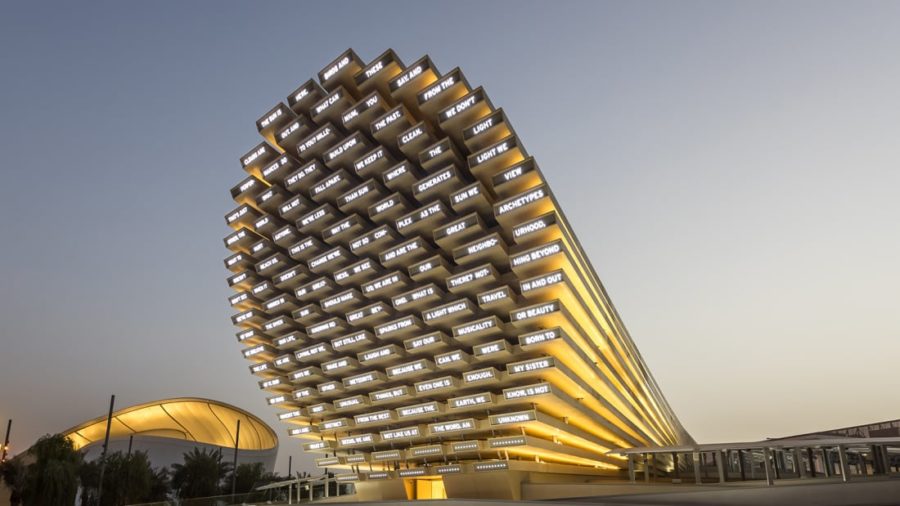Poems written by a computer light at UK Pavilion at Expo Dubai 2020/2021.
“It may read like poetry, but these lines weren’t composed by a poet — they were written by an artificial intelligence (AI) algorithm.”
The following written content by Jacopo Prisco,

“In time, we will put our eyes to this light and see that these people are the peers of nature. And forgivingly, when they appear we will lift up our song and sing, and say we cannot praise too much of any single thing.” It may read like poetry, but these lines weren’t composed by a poet — they were written by an artificial intelligence (AI) algorithm.
The phrase appeared in early December on the facade of the UK Pavilion at Expo 2020 in Dubai. It was created from a single word chosen by a visitor to the pavilion, which was then fed to an AI that had been previously trained with millions of lines of poetry. The result forms part of “Collective Message” — a constant stream of pairs of successive lines of verse, called couplets, shown in English and Arabic.
The words are displayed, via LEDs, on timber slats arranged in a circle at one end of the cone-shaped pavilion, which was designed by Es Devlin, a British artist whose previous work includes stage sets for Beyonce and Adele, as well as the London 2012 Olympic Closing Ceremony. She is the first female designer of a UK pavilion since Expo started in 1851.
Devlin’s inspiration to create Collective Message came from famed British scientist Stephen Hawking. In 2015, three years before his death, he endorsed a competition in which people were invited to submit a potential message for an advanced alien civilization, with the goal of meaningfully representing mankind and our planet.

In a similar way, visitors to the pavilion are asked to participate in Collective Message to send a message to the universe and acknowledge the role that algorithms play in our lives. “We didn’t want this thing just to be like a museum with lots of different exhibits, we wanted to actually have something that visitors can engage with,” says Stuart Bradbury of creative agency Avantgarde, which led the development of the Collective Message project.
“The algorithm was created specifically for this project, with a series of AI experts but also working very closely with a number of societies,” he adds. These include the Poetry Archive, The Poetry Society and the Scottish Poetry Library, which collaborated with developers to train and refine the output of the AI over a period of six months. “We’ve been feeding it over 15,000 poems from 100 different British poets, so it has received more than a million lines of poetry. It got better and better during the training period, and we think we’ve created something really special,” says Bradbury. Read more from Cable News.





